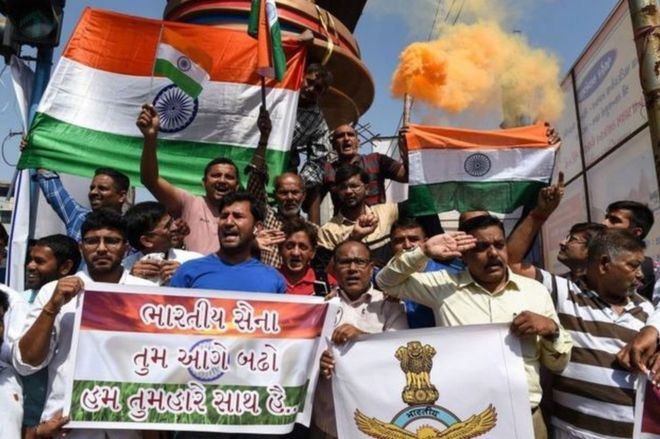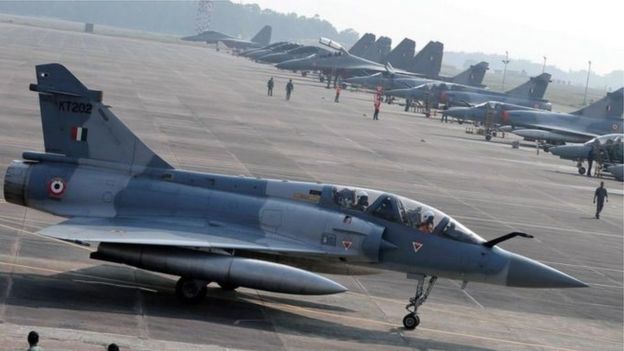BY SANJAY PATIL ( JOURNALIST)

"We are in uncharted waters," says Husain Haqqani, alluding to the latest round of heightened hostilities between India and Pakistan
Indians celebrated on hearing news of the strike
The former Pakistani ambassador to the US served as an adviser to three Pakistani prime ministers. He is the author, most recently, of Reimagining Pakistan: Transforming a Dysfunctional Nuclear State.
After Tuesday's air strikes by India targeting militants in Pakistani territory, Pakistan promised to respond "at the time and place of its choosing".
- Viewpoint: Balakot air strikes raise stakes in stand-off
Less than 24 hours later, Pakistan said it had launched air strikes across the Line of Control (LoC) dividing Pakistani- and Indian-controlled Kashmir. It also claimed to have shot down two Indian Air Force jets in its airspace in Kashmir and arrested two pilots on the ground. India has shut down parts of its airspace in the north of the country.
Many believe that the Pakistani strike could be seen as a tit-for-tat - it, like India, feels the need to placate its domestic constituency. But the challenge now is to contain the escalation of hostilities before things get completely out of control.
For one, Tuesday's air strikes by India were completely unexpected. They are the first launched across the LoC - the de facto border that divides Kashmir - since a war between the two countries in 1971.
"Pakistani military establishment had banked on India's reluctance to escalate in using asymmetrical warfare (terrorism) under the nuclear umbrella," Professor Haqqani told me.
 EPA
EPA
"India feels it has found a soft spot where it can strike - whether on ground using special forces as in 2016 or using air strikes as they have done now - without crossing that threshold."
Professor Haqqani says Pakistan "does not want war with India but its military faces a credibility challenge".
"It does not want to shut all jihadi groups. But the jihadis' presence is a constant source of problems. In 2011 the Americans entered Pakistani air space to get Osama Bin Laden. Now the Indians entered Pakistani air space, dropped bombs and returned home without resistance.
"How will the Pakistani military explain itself to a public that accepts a huge military budget on the grounds of its military's ability to defend Pakistani sovereignty"?




0 comments: